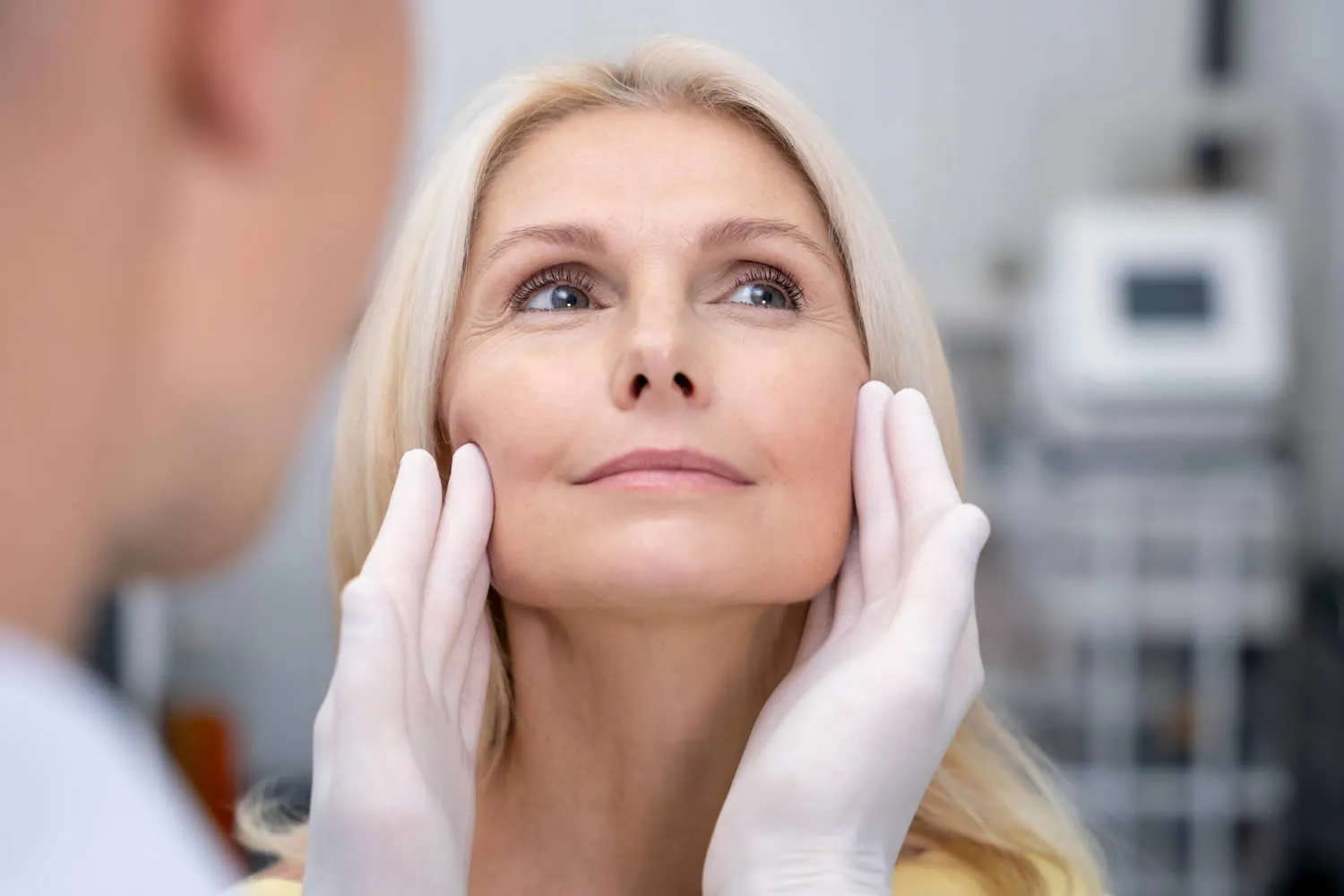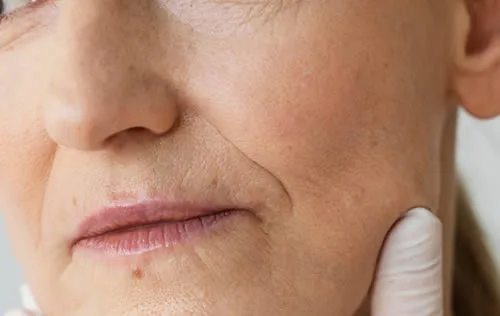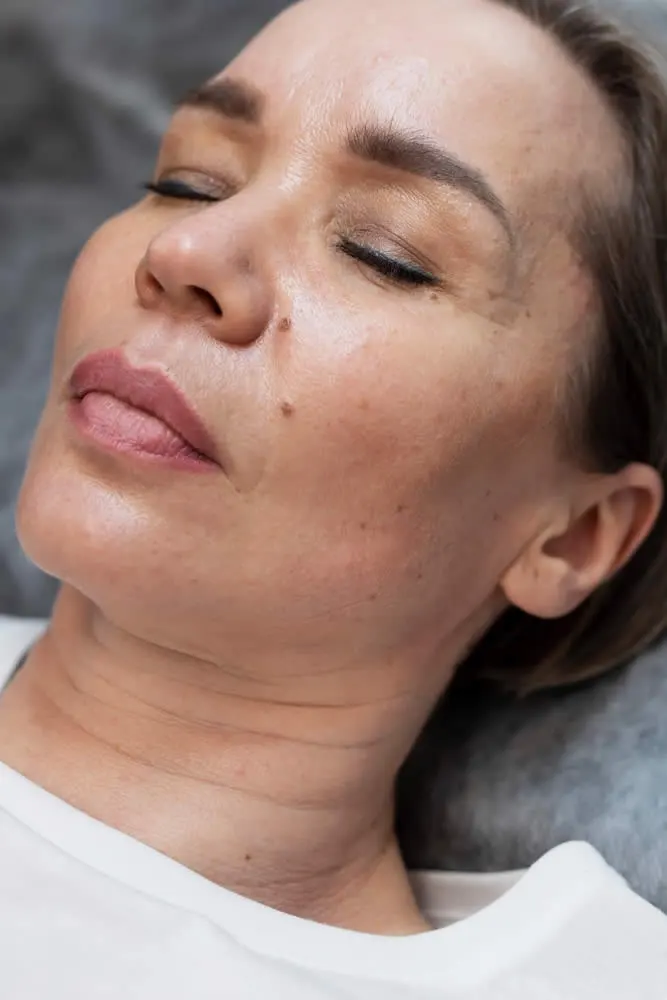Fat Transfer – Microlipoinjection

What is Fat Transfer – Microlipoinjection?
Fat transfer, also known as microlipoinjection, is a cosmetic procedure in which fat is taken from one area of the body and transplanted to another area to improve its contour or fullness. The fat is typically removed using liposuction, and then purified and injected into the desired area.
Fat transfer is commonly used to enhance the appearance of the face, adding volume to the cheeks, lips, or under-eye area. It can also be used to restore volume to the hands, improve the appearance of scars, or enhance the results of other cosmetic procedures.
The procedure is typically performed under local anesthesia, and the results are often long-lasting, although some of the transplanted fat may be reabsorbed by the body over time.

Benefits of Fat Transfer
Fat transfer, also known as fat grafting or microlipoinjection, offers several benefits for individuals seeking enhancement and rejuvenation. Here are some of the key advantages of fat transfer procedures:
- Natural-Looking Results: Using the patient’s own fat means that the results tend to look and feel natural. The transferred fat blends seamlessly with the surrounding tissue, creating a harmonious and balanced appearance.
- Minimized Allergic Reactions: Since the fat is harvested from the patient’s own body, there is a significantly reduced risk of allergic reactions compared to using synthetic fillers or implants.
- Dual Benefit: Fat transfer provides a dual benefit. Not only does it enhance one area of the body (such as the face, breasts, or buttocks), but it also slims down the donor area through liposuction, creating a more contoured figure.
- Long-Lasting Results: The grafted fat cells establish a blood supply in the new location, leading to long-lasting results. While some fat may be reabsorbed initially, the remaining fat tends to remain stable over time.
- Versatility: Fat transfer can be used in various areas of the body, including the face (for facial rejuvenation and augmentation), breasts (for augmentation or reconstruction), and buttocks (for Brazilian Butt Lift).
- Customization: The procedure allows for precise customization, as the amount of transferred fat can be adjusted to achieve the desired volume and contour.
- Minimal Downtime: Compared to more invasive surgical procedures, fat transfer typically involves minimal downtime and discomfort, allowing individuals to return to their regular activities relatively quickly.
- Reduced Scarring: The incisions made for liposuction and fat injection are small, resulting in less noticeable scars compared to larger incisions required for some surgical procedures.
- No Risk of Rejection: Since the transferred fat is from the patient’s own body, there is no risk of the body rejecting the tissue.
- Combination with Other Procedures: Fat transfer can be combined with other procedures, such as facelifts or breast augmentation, to achieve comprehensive results.
- Improvement in Skin Texture: The presence of grafted fat can stimulate collagen production and improve the texture and quality of the skin in the treated area.
- Sustainable and Eco-Friendly: By using the body’s own resources, fat transfer is considered a sustainable and eco-friendly option for enhancement.
Suitable Candidates for Fat Transfer
Ideal Candidates:
- Adequate Fat Reserves: Suitable candidates for fat transfer should have sufficient donor fat available in areas like the abdomen, thighs, or flanks.
- Desire for Volume Enhancement: Individuals seeking to enhance specific areas of the body, such as the face, breasts, buttocks, or hands, can benefit from fat transfer.
- Natural-Looking Results: Patients who desire subtle and natural-looking results that blend seamlessly with their existing features often find fat transfer appealing.
- Good General Health: Candidates should be in good overall health, without any underlying medical conditions that could complicate the procedure or recovery.
- Non-Smokers: Non-smokers generally experience better healing and reduced risk of complications during and after fat transfer procedures.
- Localized Fat Deposits: Candidates with specific areas of localized fat deposits that they’d like to address can benefit from fat transfer’s dual-purpose approach.
- Facial Rejuvenation: Patients seeking facial rejuvenation with a natural and youthful appearance can consider facial fat transfer for volume restoration.
- Breast or Buttock Enhancement: Individuals interested in modest breast augmentation or buttock enhancement may find fat transfer to be a suitable alternative to implants.
Areas of Treatment
Facial Rejuvenation
Revitalize your appearance by utilizing your body’s own natural resources. Fat transfer to the face can address common concerns such as:
- Cheeks and Midface: Enhance cheek volume for a youthful lift and improved facial balance.
- Under-Eye Hollows: Smooth out hollow areas under the eyes, reducing the appearance of dark circles.
- Nasolabial Folds: Soften deep lines that run from the nose to the mouth, creating a more youthful look.
- Lips: Add subtle volume and definition to create plumper, natural-looking lips.
Breast Augmentation
Experience breast enhancement that is both sophisticated and personalized. Our fat transfer technique can be used for:
- Breast Volume: Increase breast size and shape without the need for implants.
- Breast Asymmetry: Correct imbalances in size or shape between the breasts.
- Implant Revision: Enhance the appearance of breast implants with additional volume and softness.
Buttock Augmentation
Achieve a fuller and curvier silhouette by enhancing the shape of your buttocks:
- Brazilian Butt Lift: Use your own fat to add volume to the buttocks, creating a more youthful and lifted appearance.
- Buttock Contouring: Refine and sculpt the buttocks for a smoother and more defined contour.
Hand Rejuvenation
Restore lost volume and improve skin texture for more youthful-looking hands:
- Volume Loss: Combat the signs of aging by adding volume to thinning hands.
- Vein Visibility: Reduce the visibility of veins and tendons that can make hands look aged.
Scar Revision
Minimize the appearance of scars using microlipoinjection to improve texture and contour:
- Acne Scars: Smooth out uneven skin caused by acne scars.
- Surgical Scars: Enhance the appearance of scars from previous surgeries or injuries.

FAQ About Fat Transfer – Microlipoinjection
Where can fat be taken from for the transfer?
Fat can be taken from various areas of the body, such as the abdomen, hips, thighs, or buttocks.
How is Fat Transfer – Microlipoinjection performed?
Fat transfer is performed through a minimally invasive procedure that involves removing excess fat from one part of the body using liposuction and then purifying and preparing the fat before injecting it into the desired area.
How long does Fat Transfer – Microlipoinjection last?
The results of fat transfer can last for several years, but the longevity of the results can vary depending on a number of factors, such as the patient’s age, lifestyle, and the area being treated.
Is Fat Transfer – Microlipoinjection painful?
Fat transfer is typically performed under local anesthesia, and the level of discomfort during and after the procedure will vary depending on the patient’s tolerance. Pain and swelling are common side effects, but they usually subside within a few days to a week after the procedure.
Are there any risks or complications associated with Fat Transfer – Microlipoinjection?
Like any surgical procedure, fat transfer carries a risk of complications, including infection, bleeding, scarring, and uneven or unsatisfactory results. It is important to discuss these risks with your surgeon before deciding to undergo the procedure.
What is the recovery time for Fat Transfer – Microlipoinjection?
The recovery time for fat transfer varies depending on the patient, but most people can return to normal activities within a few days to a week after the procedure.
